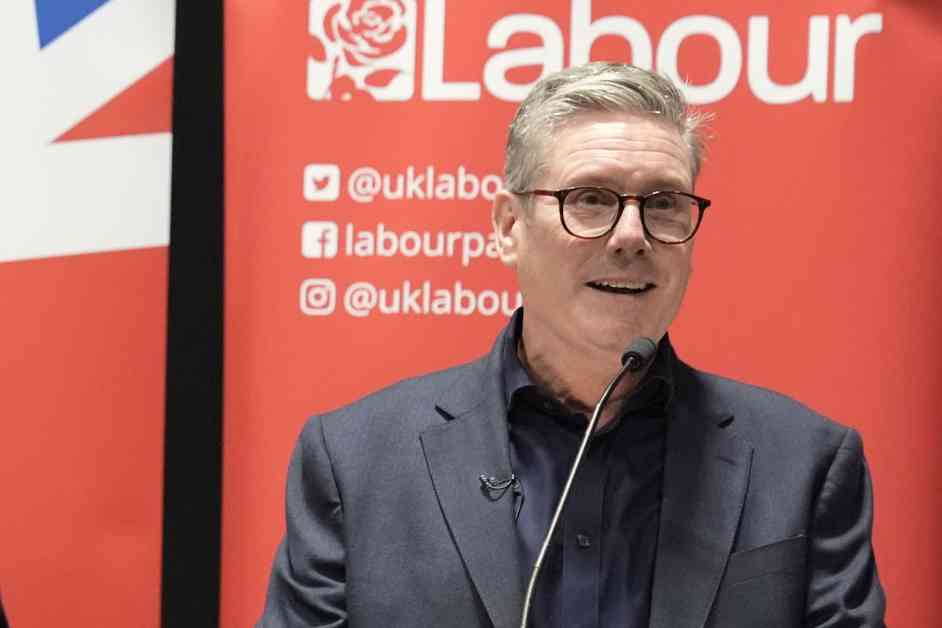Keir Starmer, the Labour leader, has recently come under scrutiny for accepting a significant amount of gifts since 2019, totaling £107,000. This amount is more than two and a half times higher than any other Member of Parliament. Despite facing criticism for his acceptance of gifts, Starmer has emphasized the importance of transparency in his actions. In two interviews on the eve of a conference, he defended his gift-taking practices, stating that it is crucial for the public to be aware of any gifts received by politicians. He explained, “Rules matter. Transparency matters.” Starmer’s stance on transparency highlights a key principle in his approach to governance and accountability.
Transparency as a Key Principle
In the midst of growing concerns over the ethical implications of accepting gifts, Starmer has maintained his position on the importance of transparency. He believes that being open about any gifts received is essential for building trust with the public and demonstrating integrity in political leadership. By acknowledging the need for transparency, Starmer is setting a standard for ethical conduct within his party and signaling a commitment to upholding high ethical standards in his role as Labour leader.
Addressing Criticism and Hypocrisy
Despite his emphasis on transparency, Starmer has faced accusations of hypocrisy for criticizing Prime Minister Boris Johnson and Chancellor Rishi Sunak for accepting gifts while simultaneously accepting a substantial amount of gifts himself. In response to these allegations, Starmer clarified that his criticism was primarily directed at Johnson, as he believes Sunak does not need to take donations. He maintained that transparency is key in addressing any concerns about gift-taking and affirmed that people have the right to know the reasons behind such actions. By addressing these criticisms head-on, Starmer is demonstrating a willingness to engage in open dialogue about ethical standards in politics.
Navigating Internal Challenges
In addition to external scrutiny over gift-taking practices, Starmer has also had to contend with internal challenges within his government. Reports of squabbling among senior staff members and controversies surrounding Sue Gray, the chief of staff, have posed obstacles to the smooth functioning of the administration. Starmer has acknowledged the damaging effects of these internal conflicts on his government’s credibility and effectiveness. By addressing these challenges openly, Starmer is showing a commitment to resolving internal issues and maintaining a cohesive leadership team.
Promoting Accountability and Integrity
As Starmer prepares for the Labour Party Conference in Liverpool, he faces the task of addressing concerns from unions and the left wing of the party. In response to these challenges, Starmer has reiterated his commitment to transparency and accountability in his leadership. He has sought to reassure party members that there will be no new austerity measures under his government, as he and Chancellor Rachel Reeves work to stabilize public finances. By emphasizing accountability and integrity in his approach to governance, Starmer is positioning himself as a leader who prioritizes the interests of the public and seeks to deliver on his promises.
Navigating Controversies and Allegations
Amid ongoing controversies and allegations surrounding gift-taking practices, Starmer has remained steadfast in his defense of transparency. Recent reports in the Mail on Sunday have raised questions about the ethical implications of accepting gifts, particularly in light of ongoing controversies involving senior staff members. Starmer has made it clear that he is committed to rooting out leakers within his operation and addressing any issues that may undermine the credibility of his government. By confronting these controversies head-on, Starmer is demonstrating a commitment to addressing ethical concerns and maintaining the trust of the public.
Looking Towards the Future
As Starmer continues to face challenges and controversies in his role as Labour leader, he remains focused on delivering results for the British public. He has emphasized the need to provide a clear vision for the future and explain the rationale behind his policy decisions. By articulating a vision for a better Britain and outlining his plans for achieving it, Starmer is seeking to inspire confidence in his leadership and demonstrate a commitment to delivering tangible outcomes for the country. As he navigates the complexities of governance and leadership, Starmer’s emphasis on transparency and accountability remains a central tenet of his approach to politics.












